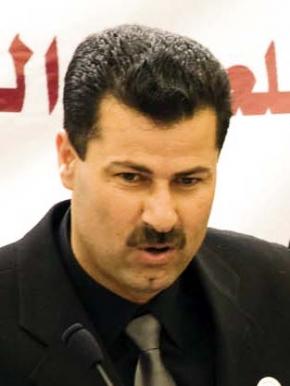Tag: Military court
-
Abdallah Abu Rahmah: Know the facts and act now for the freedom of a nonviolent freedom fighter
27 August 2010 The West Bank village of Bil’in has become a symbol of the wider popular resistance movement in Palestine. Abdallah Abu Rahmah, head of Bi’in’s Popular Committee, is one of many key organizers of peaceful resistance that Israel has used legal means to persecute. He was convicted on Tuesday of two out of…
-
Criminalizing peaceful protest: Act up for Abdallah Abu Rahmah
25 August 2010 | Popular Struggle UPDATE: Baroness Ashton condemns Bil’in leader’s conviction; Attorney: “International community must take a tough stand on human rights defenders.” Abdallah Abu Rahmah, the coordinator of the Bil’in Popular Committee, was yesterday convicted of incitement and organizing illegal marches by an Israeli military court. The conviction concluded an eight months…
-
Early release of Tom Hurndall’s killer symptom of wider Israeli crimes
20 July 2010 FOR IMMEDIATE RELEASE Correction appended The International Solidarity Movement (ISM) condemns the early release from prison of the Israeli soldier that murdered photography student and ISM volunteer Tom Hurndall in Gaza in 2003. The Israeli press yesterday reported that Taysir Hayb will be released three years early from an already short eight-year…


